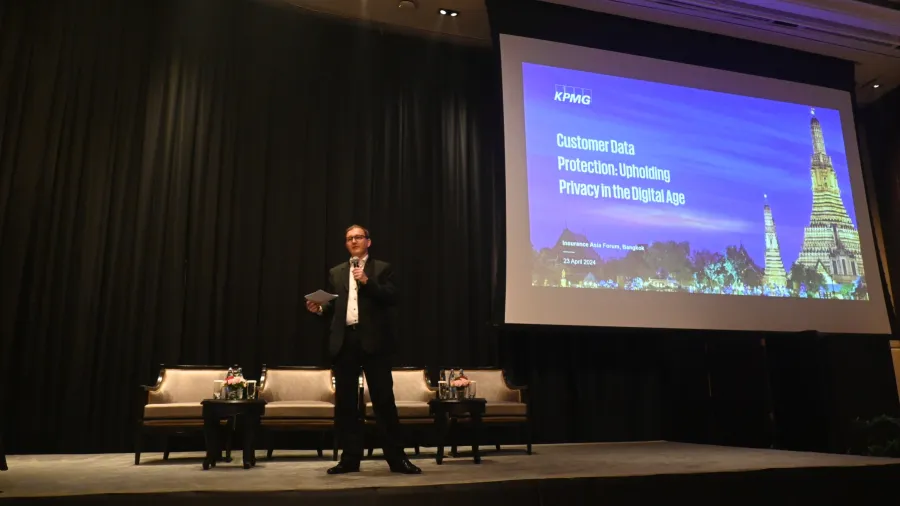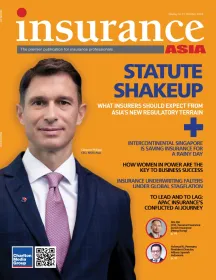
How Thai insurers can battle through a high-risk environment
Low cybersecurity lands Thailand at the 64th spot in overall resiliency rankings.
Thailand’s risk management capabilities seem to lag behind its peers, where entities from the cyberscape and the overall climate change are deemed most challenging for businesses to function. The country found itself at 64th rank in FM Global Resilience Index, amidst a mix of business opportunities and risks.
Even this “smiliest” of countries has something to frown upon. Despite its strengths, Thailand’s productivity ranking of 69th in the index highlights its ongoing economic transition and digitalisation efforts.
The country excels in controlling inflation, ranking 7th with a 2023 rate of 1.3% due to government subsidies in energy, food, and healthcare. However, it faces challenges in political risk and corruption control, ranking 86th and 88th, respectively.
Thailand addresses these risks with disaster preparedness programmes, flood management infrastructure, and progressive environmental policies aimed at reducing air and water pollution and promoting renewable energy.
Am I AI?
In terms of digital infrastructure, Thailand ranks 60th in cybersecurity and 53rd in internet usage, indicating robust connectivity and cyber risk management, the FM Global index showed.
Itt Apiraktivong, chief corporate development officer of Prudential Life Thailand, discussed the common misconceptions floating around artificial intelligence (AI) in the country at last month’s Insurance Asia Forum in Bangkok.
Apiraktivong began by drawing a parallel with the fictional Skynet from the Terminator series, explaining that whilst AI is powerful, it is far from achieving such levels of autonomy and control.
“One reason why I don’t believe it’s going to take over the world yet is because of the chip demand as well as energy demand that is required to run this AI model,” Apiraktivong told the audience at the forum.
This sets the stage for a more realistic view of AI’s capabilities and the pragmatic approach Prudential is taking. Generative AI, despite the hype, is not yet poised to take over. Instead, its potential is gradually being realised as technology and infrastructure catch up.
Since 2018, Prudential Thailand has progressively integrated AI into its operations. Starting with Robotic Process Automation (RPA), they automated policy servicing processes, achieving a leap in efficiency from 21% to 64%.
RPA alone brought significant gains, emphasised Apiraktivong. “Then the rule-based actually gives you another 10% to 20%. AI and machine learning are actually going to help you with the remaining sort of 5% to 6%t. Now, what I did not take into account is the ability with which the AI is able to replace some of the people who are able to make the decisions on behalf of coming up with the rules,” he said.
By the end of 2023, Prudential achieved noticeable results: 97% of submissions were electronic, smart underwriting reached 90%, and smart claims stood at 81%. Over 90% of policy servicing tasks are now conducted without human intervention.
Training programmes like “good prompt, bad prompt” help employees harness AI effectively, enhancing their skills and productivity.
A critical aspect of Prudential’s AI strategy is ethical considerations. They had the capability to use data to identify individuals susceptible to tele-sales promotions but chose not to.
“We had a big tele-sales operation. And it turns out that the people who actually buy insurance from telesales have a similar behaviour to someone who can be easily influenced, period. We have a set of data that could help us identify who would be that person who could be easily influenced by promotions, or by something else. So we had that, but we then decided internally, with our AI ethics committees, that let’s not do that,” Apiraktivong explained.
It only gets warmer
Thailand’s equatorial location subjects it to climate risks, reflected in its low rankings in FM Global’s index for urban development (111th), climate change exposure (111th), and climate risk exposure (96th).
Min Hung Cheng, deputy CEO of the Global Asia Insurance Partnership (GAIP), seeks to enhance long-term risk resilience in Asia alongside its team of industry leaders and regulators.
Cheng warned about the staggering economic impacts of climate change, both globally and in Asia. From 2000 to 2019, climate-related damages globally averaged $143b annually. Without action, the global economy could see an 18% reduction in gross domestic product (GDP) by 2048, with Asia facing even starker consequences.
The region's economy could shrink by 26.5%, and ASEAN countries could see a 37.4% GDP reduction, with Thailand potentially losing up to 45%.
“Thailand could lose up to 45% of its GDP by 2048 if no action is taken in this severe scenario. Now, these staggering numbers just underscore the urgency of the transition to net-zero emissions by 2050. The risks associated with climate change are not a distant trend. I’m talking about 2048 here, but we must do something now. It is an immediate challenge. And addressing these recent challenges head-on is vital, not just for the sake of environmental stewardship, but also for economic stability and human safety,” Cheng cautioned the audience at the Insurance Asia Forum.
The transition to net zero also brings transition risks, requiring the reassessment of asset values, investment strategies, and alignment with evolving regulations and consumer preferences. Cheng spelt out five strategic roles the insurance industry can play:
- Risk Advisor: By providing data, analytical tools, and insights, insurers can help businesses and governments manage climate risks proactively.
- Educator: Raising awareness and understanding of climate risks can drive behavioural change. Insurers can conduct training sessions, workshops, and seminars.
- Influencer: Through economic incentives and pricing models, insurers can promote sustainable choices.
- Investor: With access to vast capital reserves, insurers can influence shifts towards a sustainable, low-carbon economy. Investments in renewable energy and green infrastructure are critical.
- Wealth Manager: By integrating sustainability factors into portfolio offerings, insurers can guide customers towards investments that yield financial returns and positive environmental outcomes.
Future worth smiling about
Thailand’s resilience is typical of economies with a dominant urban centre and concentrated industrial zones, where less developed areas can hinder overall resilience. Cheng acknowledged these significant challenges, along with regulatory hurdles, data and risk modelling limitations, and low climate literacy.
“The creation of innovative products and enhancements of tools and modelling may be hindered by regulations that have not kept pace with the necessities of climate change mitigation and adaptation. Or capital requirements, regulations, and restrictions on investment allocations may limit an insurer's ability to fund or insure new green initiatives or climate-related products. That said, the regulatory and policy-making community are also taking steps to address these concerns,” Cheng told the Bangkok forum.
“While these are positive steps, such efforts need to be more widespread and timely to avoid a mismatch between the pace of innovation and policy development, which can lead to uncertainties and potential legal risks,” he added.
Reflecting on the same future, Apiraktivong referenced Kai-Fu Lee’s book, “AI Superpowers,” which categorises jobs based on their susceptibility to AI automation.
“If your job or any jobs that require optimisations and no compassion is needed, it will be fully automated by AI. If a job requires optimisation but requires compassion, you need to use AI with a human interface, because humans have a better ability to interface with another human where compassion is needed,” the Prudential Thailand executive said.
“If a job requires compassion and requires creativity and strategy, that’s where humans will use some of the AI to assist their job. And lastly, a job that requires creativity but compassion is not needed is largely AI with a bit of human help,” he concluded.
This paradigm shift from simply incorporating AI into business processes to embedding business strategies within AI frameworks represents the next frontier. And so, Apiraktivong posed the same question to the audience: How do we put our business in AI?



















 Advertise
Advertise


